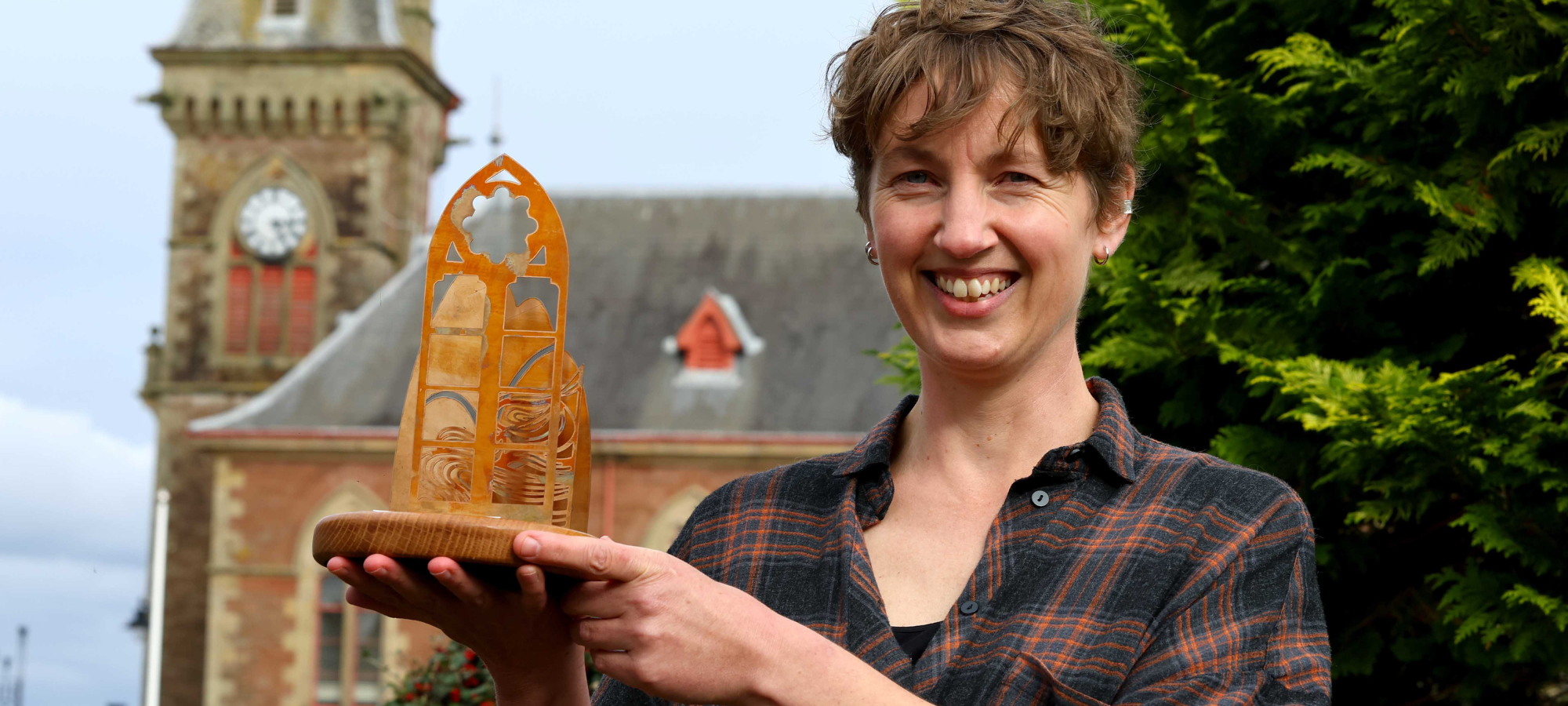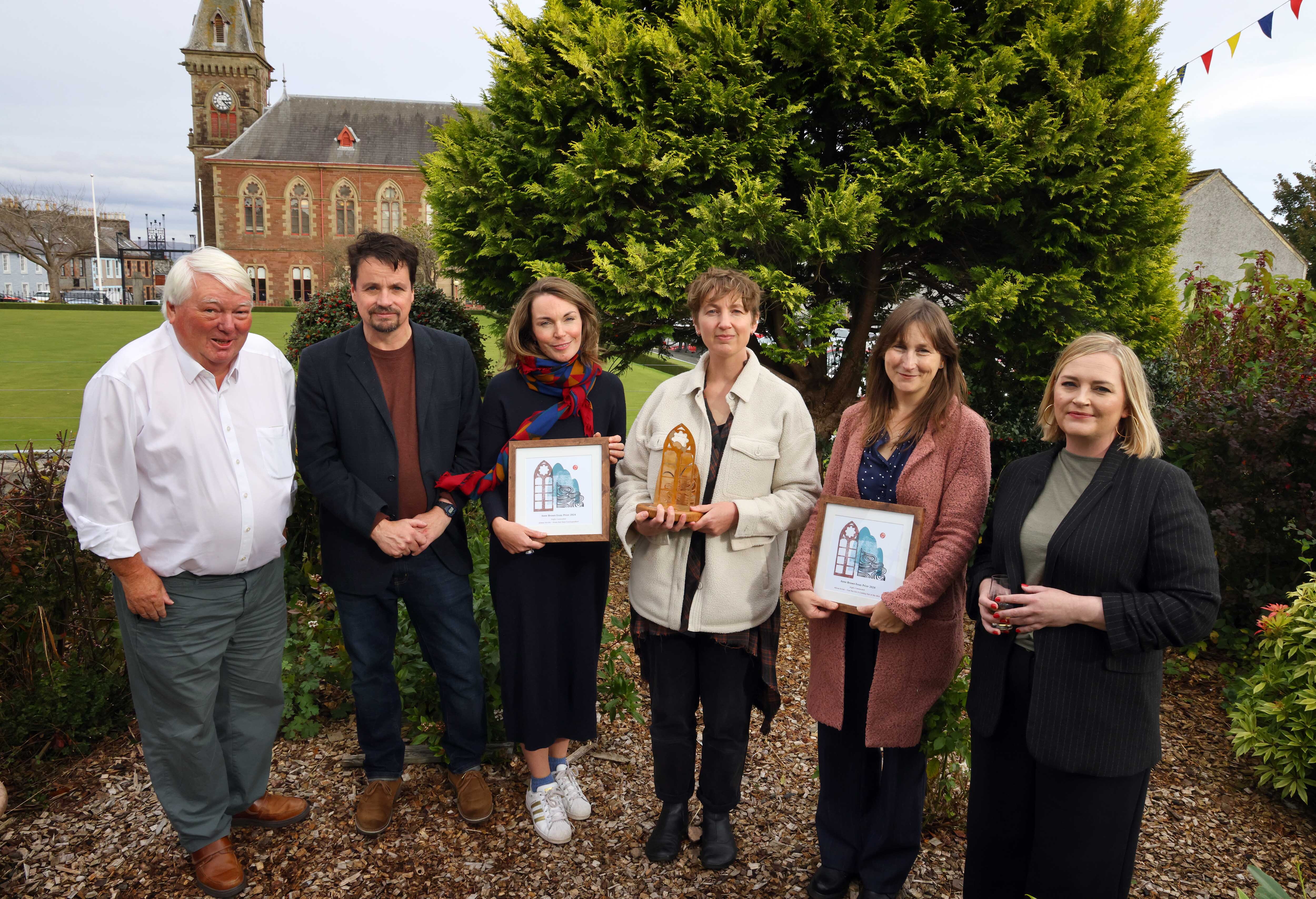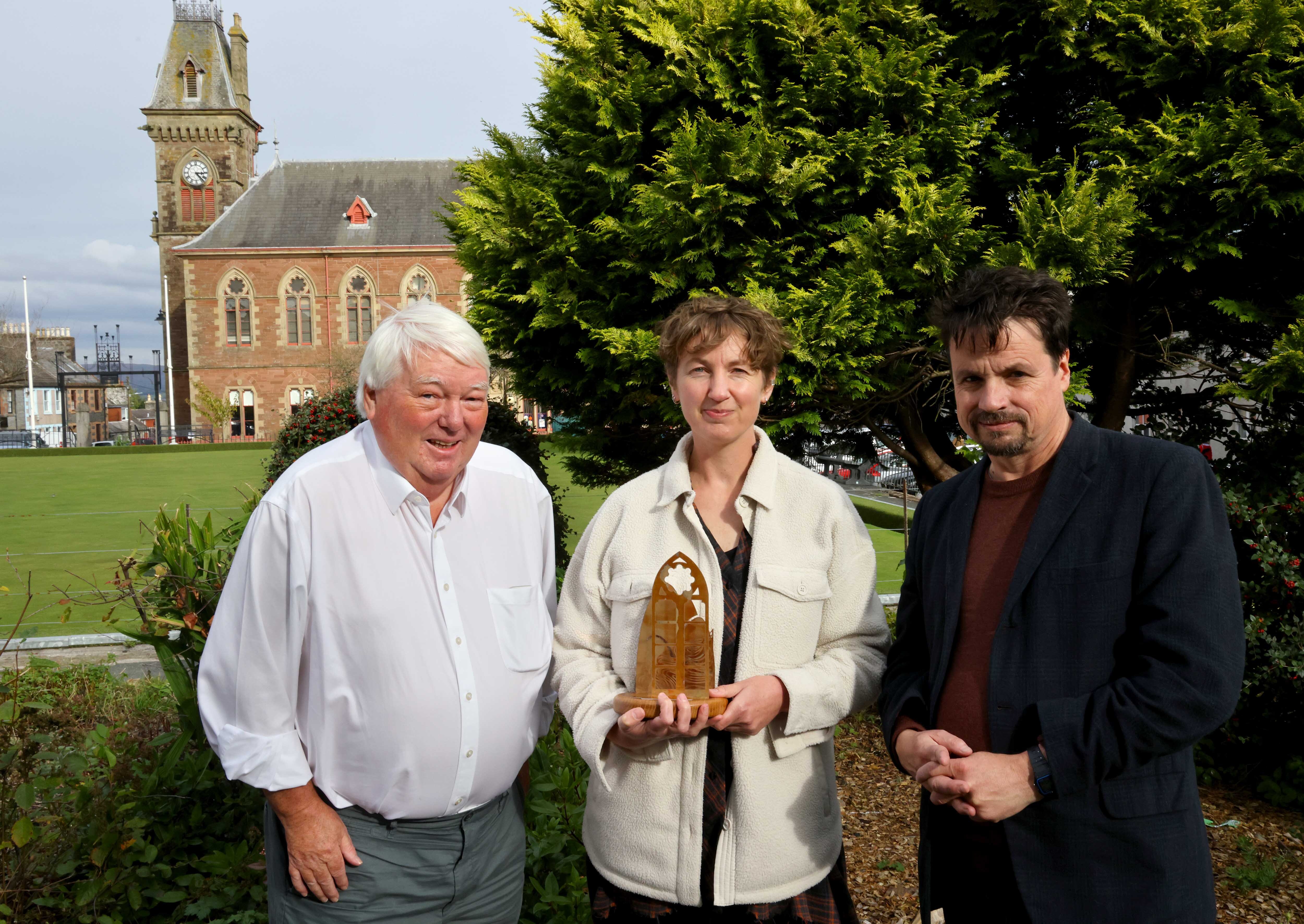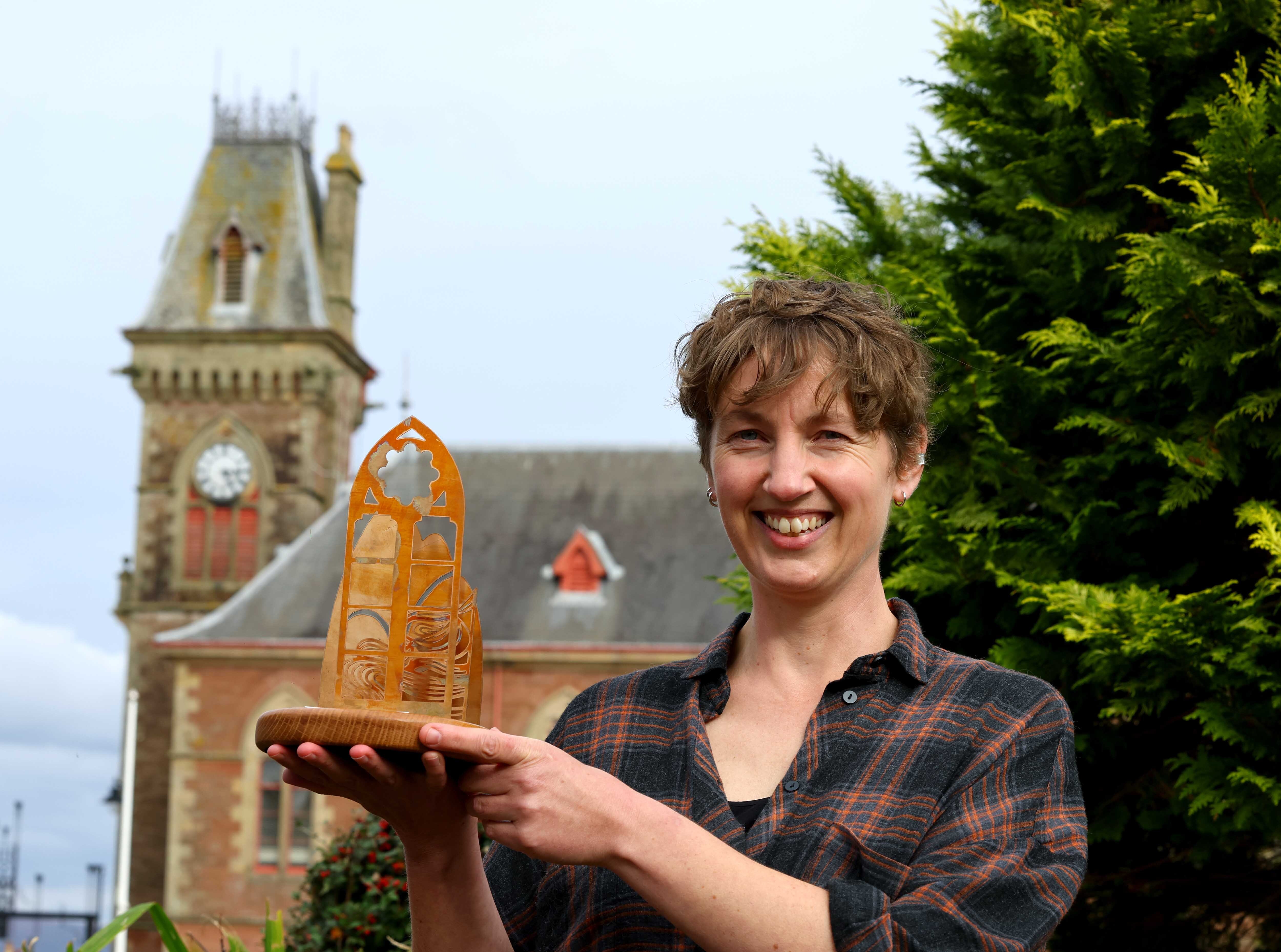
Anne Brown Essay Prize Winner Revealed
29/09/24
The Anne Brown Essay Prize for Scotland has been awarded to Edinburgh-based Sarah Whiteside for her profoundly personal story about autism within her family.
The annual £1,500 prize for the best literary essay by a writer in or from Scotland is jointly organised by Wigtown Book Festival and the Herald.
This year’s judges were led by Herald columnist and former BBC political editor Brian Taylor.
At a special ceremony in Wigtown yesterday, Taylor highlighted the significance of the essay as a literary form – worldwide and at home.
He said:
“The essay has a lengthy pedigree in literary history. From Cato and Plato through Addison and Steele to Susan Sontag. And in Scotland from David Hume to Stevenson, Carlyle, Muriel Spark and Andrew O’Hagan.
“This year’s award attracted a comparably diverse field. I think my fellow judges will agree that sifting the entries was a challenging task.”
Whiteside’s entry, Thin Slices, is a dynamic and inspirational exploration of her son’s autism, her realisation that she too is autistic, as well as the flawed social and scientific attitudes that surround neurodivergence.
Taylor said:
“The judges in the Anne Brown essay prize had an exceptionally difficult task in sifting such a fine list of entries.
“Our final choice reflected the power and candour of the personal story, the depth of the accompanying research and analysis plus, of course, the quality of the writing. A worthy winner in a distinguished field.”
Whiteside is enjoying a successful year having already received a Scottish Book Trust New Writers’ Award.
Her work has also appeared in Ambit, The Letters Page, Brittle Star, New Writing Scotland and Gutter Magazine.
She said:
“I was surprised and honoured to receive this award. The narrative around autism is changing fast just now, in large part due to the work of writers and advocates coming from within the autistic community.
“Wider society is starting to understand that autism is a different way of experiencing the world, rather than a set of deficits, and if this essay can play a small part in this change then it will have done its job.”
Two other essays were highly commended by the judges.
One of these, Alison Irvine’s Can You See It Coming Out of the Mist, describes and analyses the creation and subsequent decline of Cumbernauld New Town.
Taylor praised it as:
“Both poignant and powerful. We are told at one point there was ‘genuine hope in the building’s construction and yet such despair in its neglect’.”
Irvine has previously achieved success with This Road Is Red a novel based on the true stories of residents of Glasgow's Red Road Flats which was nominated for the Saltire First Book of the Year Award.
For the second year in succession Jemma Neville was also highly commended. Her essay From our own Correspondent is a dispatch from the frontline of motherhood and looks at parenthood and bereavement.
Taylor said:
“This essay deals deftly with parenthood, pride – and bereavement. It is exceptionally powerful.”
Neville is director of the national arts charity Creative Lives and a regular contributor to The Times and BBC Radio Scotland. She was the inaugural Community Fellow at The Institute of Advanced Studies in Humanities, University of Edinburgh.
Adrian Turpin, Wigtown Book Festival Artistic Director, said:
“The essays by Sarah, Alison, Jemma and the other finalists are fabulous pieces of work, underlining the importance of having a national competition to nurture and promote essay writing.
“Together they demonstrate the value of the essay as a way to dig deep into a wide range of subjects, bring fresh perspectives and offer profound insights on contemporary life.”
The other shortlisted essays were:
Seeing Starlings by Chris Arthur, a Belfast-born essayist currently based in St Andrews. His essay blends observation of nature with his experiences in Northern Ireland.
Fashioning by Sasha de Buyl who is the programmer of the international Literature Festival Dublin. Their entry explores, from a personal point of view, how gender is understood and constructed.
The World’s Longest Daisy Chain by Jenny Lindsay, a Scottish poet, performer and memoirist. Her essay looks at peer pressure and bullying.
The competition commemorates journalist and former Wigtown Book Festival Chair Anne Brown and is supported by her children, Richard and Jo.
In addition to the prize money, the winner receives an award designed by artist Astrid Jaekel.
Thin Slices will be published on the festival website and a lengthy excerpt will be printed in The Herald.


